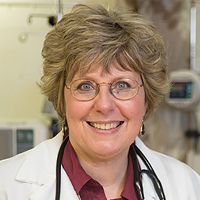Please note: AABB reserves the right to make updates to this program.
Live Program Date: Thursday, October 9, 2025 - On-Demand Available
Presented by Grifols, an AABB Premium Corporate Partner
![]() Innovations in molecular immunohematology have led to clinical advances in transfusion medicine, including changes to standards of practice. Adoption depended on clinical urgency, limitations of current practice, and significant improvements to safer transfusions. Automation and high throughput also influenced innovation. Some 80 reports were published in the 2 years after the seminal articles on mass-scale red cell genotyping appeared in Transfusion May 2005 issue. Since that time, Transfusion has published over 450 manuscripts on molecular immunohematology. Learn through examples how innovations in modern-day genotyping help provide safer transfusions for the simple to complex transfusion recipient.
Innovations in molecular immunohematology have led to clinical advances in transfusion medicine, including changes to standards of practice. Adoption depended on clinical urgency, limitations of current practice, and significant improvements to safer transfusions. Automation and high throughput also influenced innovation. Some 80 reports were published in the 2 years after the seminal articles on mass-scale red cell genotyping appeared in Transfusion May 2005 issue. Since that time, Transfusion has published over 450 manuscripts on molecular immunohematology. Learn through examples how innovations in modern-day genotyping help provide safer transfusions for the simple to complex transfusion recipient.
After attending this program, participants should be able to:
This on-demand Science & Innovation Forum is complimentary to all, but registration is required. By registering for this AABB-hosted program you consent to have your information shared with the program sponsor, Grifols. Register here.
 Moderator: Laura Cooling, MD
Moderator: Laura Cooling, MD
Professor, Blood Bank, Transfusion Medicine
University of Michigan, Department of Pathology
Ann Arbor, Michigan
Dr. Cooling received a B.S., a M.Sc. from the University of Iowa and an M.D. from the University of Iowa Medical School. She completed her residence training in Laboratory Medicine followed by a Fellowship in Transfusion Medicine and Pathology at the University of Iowa Hospitals and Clinics. She joined the University of Michigan in 2000 subsequently promoting to full Professor in the Division of Clinical Pathology serving as Associate Director of Transfusion Medicine, Director of the Immunohematology Reference Laboratory (IRL) and Director, Cellular Therapy Laboratory (CTL). She recently retired and is an Emerita Professor of Pathology.
.jpg?sfvrsn=4abc25f3_1) Speaker: Gregory Denomme, PhD, FCSMLS(D)
Speaker: Gregory Denomme, PhD, FCSMLS(D)
Director of Medical Affairs (IH Global)
Grifols Diagnostic Solutions
Emeryville, CA
Dr. Denomme is a clinical and academic trained laboratory scientist. He has medical laboratory science certification with specialty training in immunohematology. He obtained a doctorate in microbiology, immunology, and completed postdoctoral fellowships in Pathology & Molecular Medicine and Platelet Immunology. With a longstanding career in immunohematology, Dr. Denomme is well-suited to provide an overview of red cell genotyping on patients and donors, putting the history into perspective with today's state-of-the-science for the simple and complex blood transfusion needs.
The content of this event was developed independently from the AABB continuing education program. The opinions expressed are those of the faculty. Continuing education credit is not offered.
Science & Innovation Forums are live and on-demand programs that are presented by companies serving the AABB community and target critical needs in the field that can be addressed by the sponsor’s solutions technology. Registration is complimentary to all.